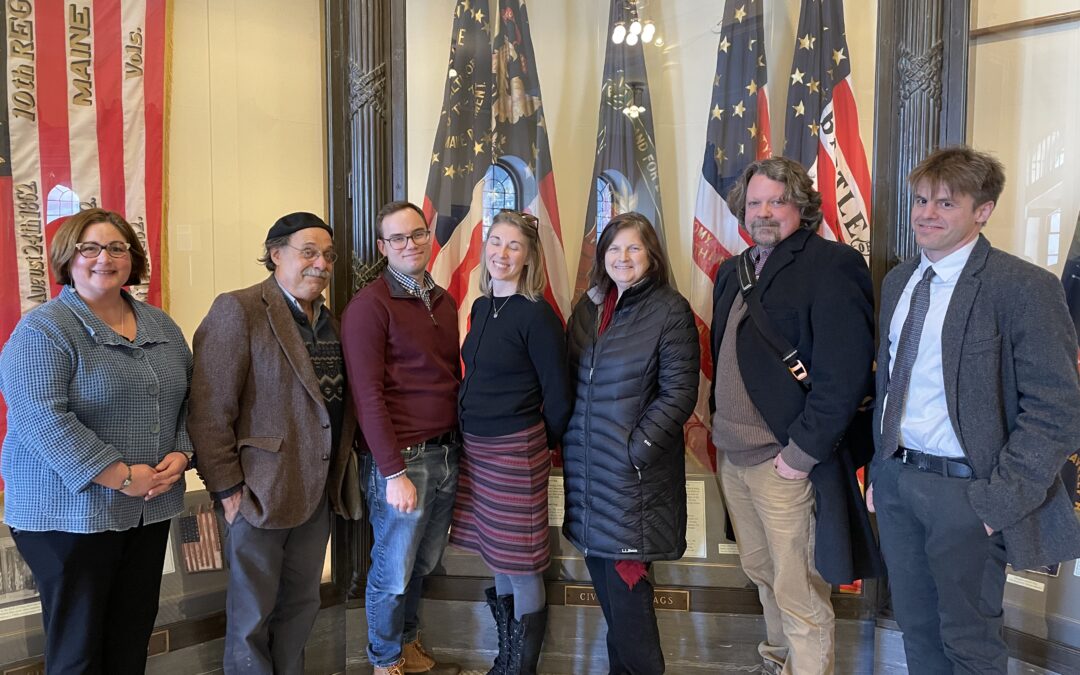Members of all three bargaining units at the University of Maine System—the Associated Faculties of the Universities of Maine (AFUM), the Universities of Maine Professional Staff Association (UPMSA), and the Associated COLT Staff of the Universities of Maine (ACSUM)—have been pressing lawmakers for increased funding to the University of Maine System (UMS).
“While we praise the Governor’s budget proposal to increase UMS funding by 4%, it is not sufficient to make the necessary investments that provide Maine with the future workforce critical for economic growth,” said MEA President Jesse Hargrove. “Funding for UMS has been stagnant, and the current budget proposal will not address systemic issues in the University of Maine System, such as deferred maintenance, staffing shortages, and low employee pay.”
Last summer, staff from the three bargaining units at UMS launched the Fund Maine’s Future campaign to spotlight the system-wide impact of low wages and deteriorating facilities. These issues, stemming from inadequate state appropriations, have significantly affected every department, with students and staff bearing the brunt of the consequences.
Survey results shared by Brian Berger, President of ACSUM, which represents hourly COLT (clerical, office, laboratory, technical) staff across UMS, further illustrate these challenges. Many ACSUM members report struggling due to low wages. Over 45% of respondents use more than half their income to cover housing and utilities costs. Additionally, over 35% report working a second job, and many qualify for public assistance such as supplemental nutrition services, heating assistance, or MaineCare.
These financial struggles are one of the many consequences of inadequate state funding for the university system. Adjusting for inflation, the state appropriation to the UMS has fallen by 10% since 2008, and 2022 was the lowest amount ever appropriated to the system.
The decades of declining appropriations have led to structural gaps and significant budgetary issues—including an estimated $1.6 billion in deferred maintenance of university facilities. Many staff members report that facilities and buildings throughout the system have foregone maintenance and are deteriorating, which undoubtedly impacts not only staff, but students throughout the university system.
Associate Professor of Biochemistry at UMaine, Josh Kelly, has witnessed firsthand the effects of deferred maintenance. Describing his experience, he said, “The HVAC system fails multiple times a year, leading to failed experiments and uninhabitable labs. Temperature swings and steam leaks have damaged microscopes worth upwards of a million dollars and destroyed ultracold freezers, leading to tens of thousands in equipment damage and incalculable research losses.”
These challenges underscore a broader issue of how underfunding higher education can hinder economic growth. Michael Cauvel, Associate Professor of Economics at the University of Southern Maine, highlighted this critical issue for lawmakers recently. According to Cauvel, only 36% of Mainers hold a bachelor’s degree, which places Maine behind all other New England states. “This puts us at a serious competitive disadvantage relative to our neighbors,” Cauvel noted. “It makes it difficult to attract and retain dynamic businesses that require a pool of educated workers.”
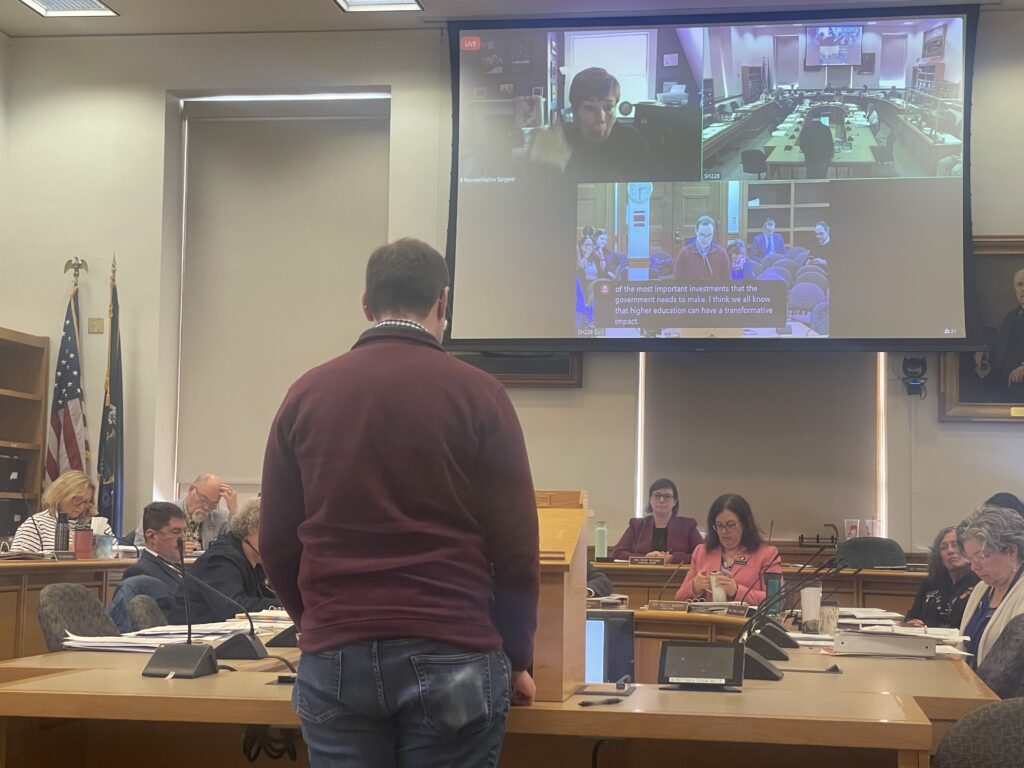
Since January, members have been meeting with legislators at the State House, engaging in webinars to share data and lobby for an increase in the state’s appropriation to the University System. One of the lawmakers leading the charge is Senator Mike Tipping (D-Penobscot), the state senator for District 8, which includes the town of Orono.
“The fact that we are not investing in our future means that we are shortchanging our state and mortgaging the futures of our children,” says Senator Tipping.
This year, Maine has an opportunity to make a pivotal investment in higher education. This funding represents one of the most significant engines of economic growth—our universities. By supporting funding for UMS, Maine can ensure a well-educated workforce that attracts dynamic businesses and fosters innovation. Such an investment could be transformative for the state, driving economic and social progress for years to come.
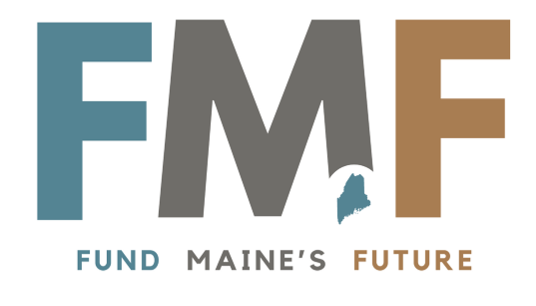
To learn more about Fund Maine’s Future or to ask your elected officials to support the initiative.
Higher Education Funding Statistics
→Investments in Higher Education Pay for Themselves
10% The Rate of Return on Government Spending for Public Universities
→Governments spend $85,000 less on lifetime services for those with a college degree
$500,000 Increased lifetime tax revenue of college degree holders.
→Students with a bachelor’s degree earn 84% more than those without a degree
→Staff Pay the Price:
- 7% Pay Cut since 2020 for UMPSA
- 6% Pay Cut since 2016 for AFUM
- 4% Pay Cut since 2021 for ACSUM
- $1.6 billion in deferred maintenance across the University of Maine System
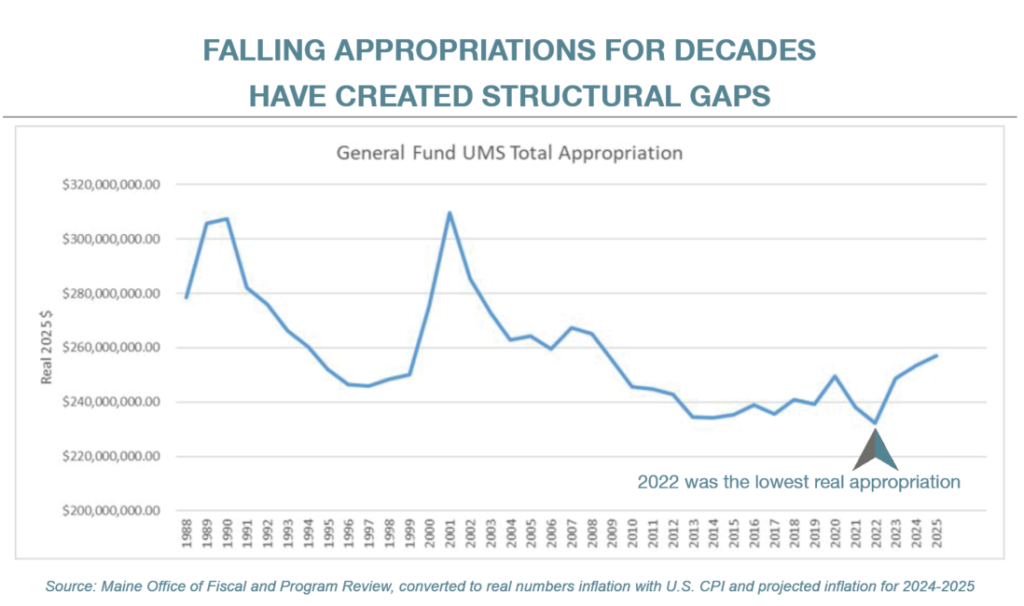
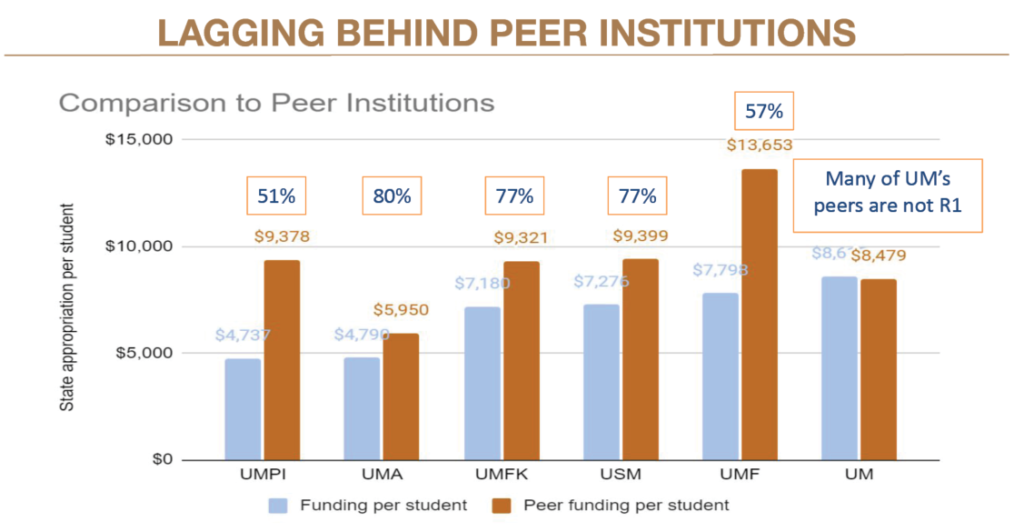
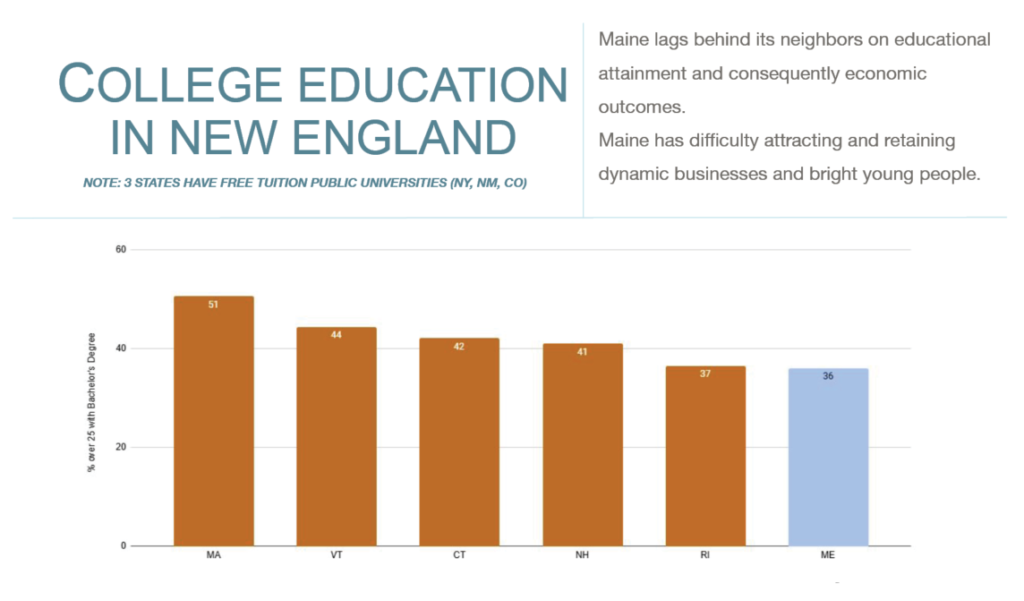
Read the entire report: FMF Presentation 2025 (1)

